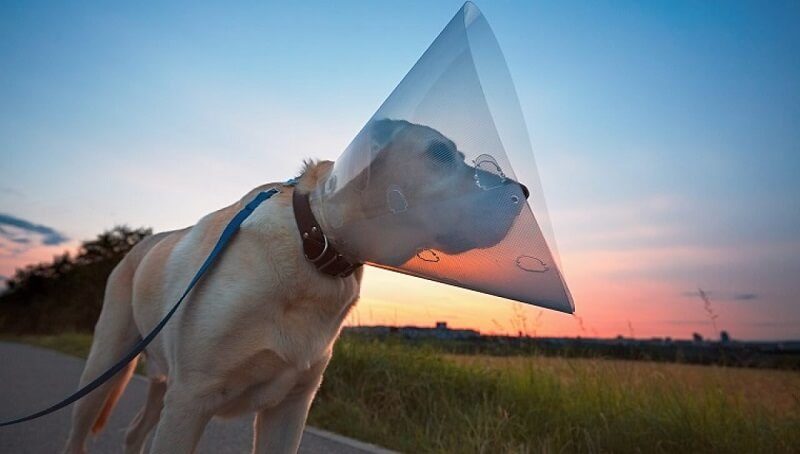
Different Types of Ferrets
August 3, 2022
How to Stop Your Cat From Growling and Hissing
August 3, 2022
When you’re a pet owner, you hear about neutering and spaying from left and right. Although you will notice that there are a lot of NGOs and other types of organizations campaigning for affordable access and education on these procedures, these are usually in place as a way of controlling the number of pets without owners and not about the actual health of dogs. Even so, there are a lot of reasons to have your dog castrated, or neutered, and this procedure will have its benefits.
Are there any signs that point towards the need for your dog to be neutered? Is there any benefit for the pet in this procedure? Of course, regardless of your decision, research, or questions you might have, it is always better to talk to the vet before making this somewhat big step in your pet’s life. But before you actually get in touch with a professional, here’s what you need to know about neutering a male dog, what is real and what’s only a myth, to help you reach a decision.
Will neutering change my dog?
Although neutering a male dog will come with very minor physical changes, the physical health benefits are not something you can ignore. You’ll first be able to see the scars and of course, the testies will be gone, but the scars will be almost completely gone when the dog heals and he will definitely get used to the lack of balls.
You might also like my articles on why is a dog shaking, how to stop dogs from pulling on their leash, or why dogs sleep on their backs.
You will only see blatant differences right after the surgery, with most of them going away after a short while. According to an article from the Santa Cruz Veterinary Clinic website, although a dog won’t use his personality and joy of life after this type of surgery, he will be different due to the reduction of testosterone in his body.
Does neutering a dog calm them down?
Things aren’t always easy when it comes to figuring out how getting fixed will make a dog change, even though this procedure will result in a calmer pet most of the time, at least in the long run. Although some people say that the behavior of the dog will do a complete flip after the procedure, not all effects testosterone has had on the pet’s body will be reversed. Keep in mind that testosterone in the pet’s body will make some behaviors more likely, but not necessarily a must, as Hillcrest Animal Hospital perfectly puts it. This is why most people will recommend neutering as a way to help the dog stop acting territorial, reacting aggressively, or humping people’s legs, other pets, or even toys.
Below you will find some behaviors that can be attributed to too much testosterone, which could be reduced or eliminated through neutering:
- Roaming around and leaving your house in search of mates
- Masturbation
- Humping and mounting
- Reduced fear response
- Increased sexual drive
- Increased risk-taking
- Marking territory with urine
- Reduced aggressive threshold
You should also consider the fact that a lot of male dogs might become even more aggressive after the neutering, even though this state is usually temporary and related to the trauma of the surgery. Although hormonal imbalances are mostly to blame for this, some breeds are also more likely than others to get more temperamental after getting fixed. Just be patient with your dog after this intervention and keep in mind that he is probably not feeling so well.
Any reason why you should not neuter your dog?
 You should know that neutering a dog isn’t always the happy situation that mainstream media, animal rescue organizations, and even some veterinarians try to make it out to be. Although the benefits are obvious and I have gone through some of them up to this point, some new studies are also showing some possible drawbacks of this intervention.
You should know that neutering a dog isn’t always the happy situation that mainstream media, animal rescue organizations, and even some veterinarians try to make it out to be. Although the benefits are obvious and I have gone through some of them up to this point, some new studies are also showing some possible drawbacks of this intervention.
Of course, one of the obvious reasons to not neuter a dog is if you want to ever breed him responsibly and safely in the future. Even if you don’t want to have puppies from this dog ever again, this isn’t a decision to take lightly, so take your time and read up, so you know this is what the pet actually needs.
There are other things you should consider as well. For example, it is known that this procedure can increase the likelihood of some types of cancers in the dog’s body. For example, there has been a study done by a research team led by Dr. Benjamin Hart from the University of California, that tried to compare the health of dogs within the same breed, who, some had, and some hadn’t been neutered. These tests were done across 35 breeds and the final results varied quite a bit. While some breeds, like the Shih Tzu, experienced no differences whether intact or neutered, others, for example, the Golden Retriever, were 3 to 4 times more likely to not only develop some types of cancers but were also prone to other diseases, like hip dysplasia, after being fixed.
Dr. Hart also managed to contradict a lot of the info already available about this particular surgery. The popular belief was that neutering a dog would decrease the risk of the pet developing prostate cancer, but his research was able to prove that male dogs were more likely to experience this disease after being neutered.
How long is recovery for neutering a dog?
The usual healthy male dog that doesn’t go through any surgery complications shouldn’t need more than ten days to get to the point where it can return to its normal daily activities, even though all dogs are different, so their recovery schedules will also differ slightly. Keep in mind that the dog won’t feel ill for the whole 10 days, but even so, it is very important to have him rest as much as possible, for the surgical site to heal properly.
To prevent the dog from licking its healing surgery wound, you should also consider using an inflatable collar or an e-collar. Although this will be annoying for the dog, the benefits of getting one are surely hard to ignore.
While your pup goes through recovery, try to keep an eye on his energy levels and bathroom frequency. His actions might be kind of messy for a while but should gradually return to normal.
